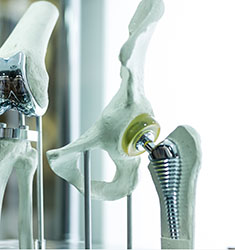Program Description
Biology is the study of life: the cells, physiology, and behavior of all living things. The biological sciences impact almost every aspect of modern life and interface with a multitude of fields and disciplines, including the basic sciences and medicine, social sciences, law, and engineering. This makes studying biology an ideal preparation for a wide range of careers. The Department of Biology at the University of Utah offers a wide range of courses involving field, laboratory, lecture, and library experience. Students pursuing a degree in Biology may complete one of the following emphases:
- Cell and Molecular Biology
- Ecology, Evolution, and Environmental Biology
- Health, Anatomy, and Physiology
- Integrative Organismal Biology
Students may also complete minors in Biology, Biology Teaching, and Integrative Human Biology. Regardless of the specifics of your program, a biology degree will prepare you for postgraduate education in the health sciences and allied fields, graduate school leading to advanced degrees in the biological sciences, and employment in a variety of health- and science-related jobs.
The Student Experience
A number of academic enrichment opportunities are available to students, including independent research projects and internships. You can also participate in Community Engaged Learning, a hands-on, experiential program that allows you complete community service projects and gain academic credit while doing so. If you want to become more involved in your academic experience, consider joining BioSAC, the student advisory committee for the Biology department; or, join the BioScience Undergraduate Research Club, or BSURC, for the chance to meet fellow students and faculty members, network, and learn more about the exciting field of biology.
Career Opportunities
The U’s Biology program will prepare you for employment in a number a fields. If you enjoyed your undergraduate research experience, consider continuing or expanding on a topic in graduate school and beyond as a researcher. Other employment opportunities available with further education include work as a professor, physician, dentist, optometrist, veterinarian, or pharmacist. Students may also pursue employment in fields such as biophysics, cellular and molecular biology, genetics, bioinformatics (analyzing biological data), chemistry, and the environmental sciences.

 Biology
Biology


